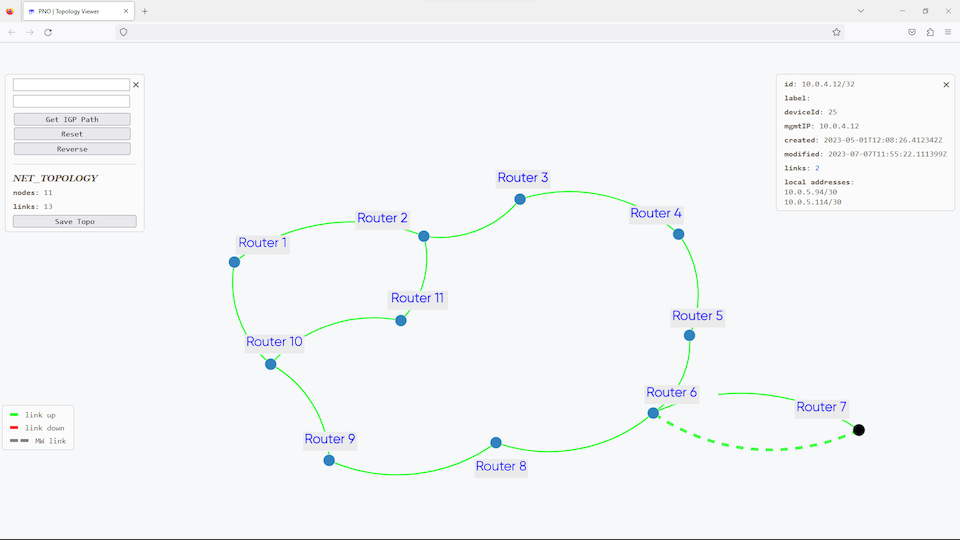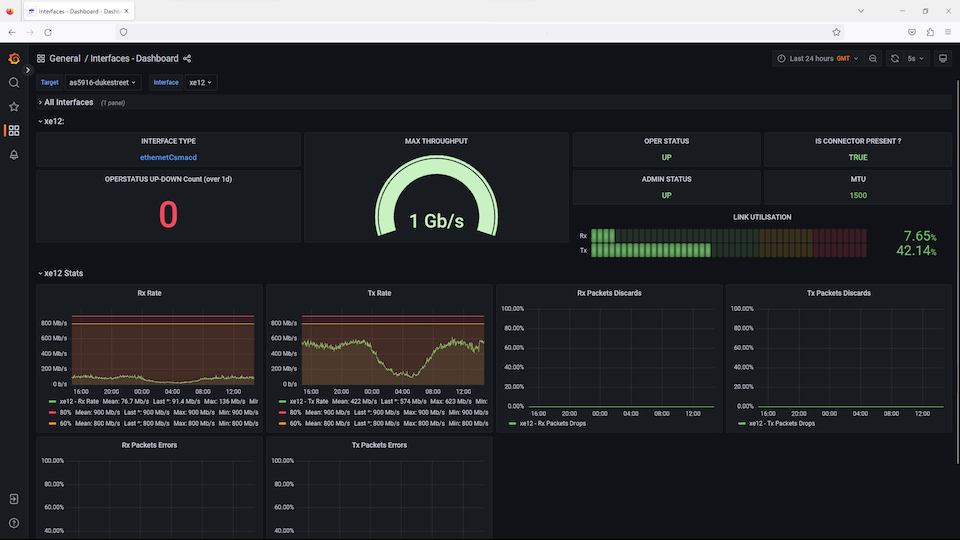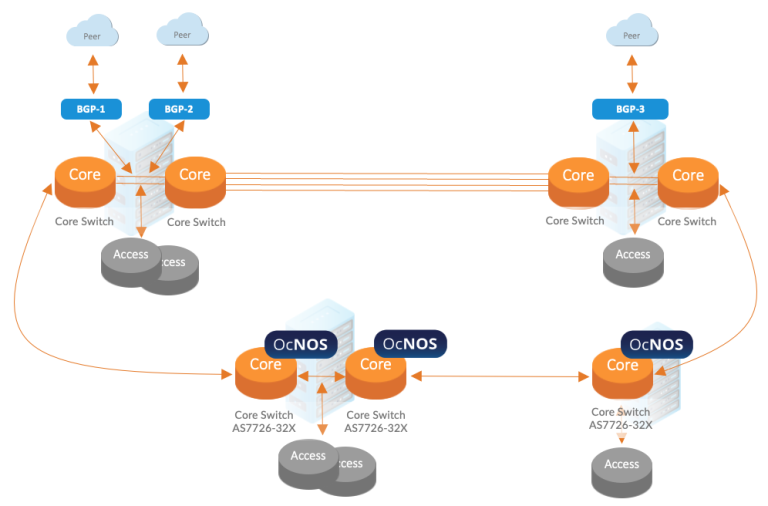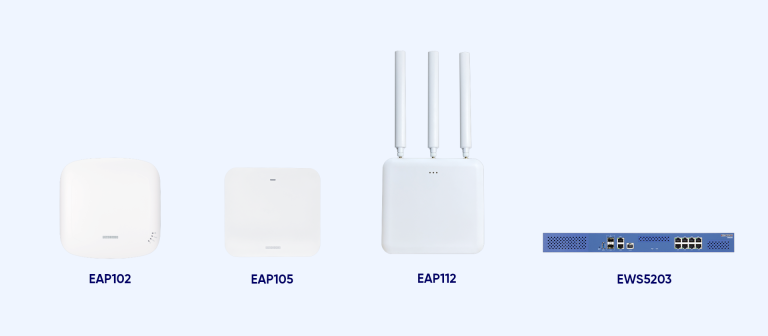Africell Sierra Leone deploys a disaggregated IP backbone
Pine Networks collaborates with Africell to deploy a high-capacity disaggregated IP backbone
Africell Sierra Leone offers comprehensive mobile coverage, including 2G, 3G and 4G throughout the entire country. Additionally, Africell provides high capacity FTTx to cater to the connectivity needs of businesses and residential areas in Freetown.
Due to the significant surge in traffic resulting from its extensive 4G coverage and in preparation for the introduction of 5G, it became crucial for Africell to deploy a robust and scalable IP backbone network for the backhauling of both mobile and fixed traffic.
Known for its innovative approach and early adoption of new technologies, Africell made the strategic decision to deploy its new backbone infrastructure using disaggregated routing solutions based on the IP Infusion OcNOS Network Operating System (NOS) and the Edgecore Networks AS5916-54XKS Whitebox switches.

Pine Networks successfully delivered this turnkey project to Africell. Throughout this strategic endeavor, Pine Networks collaborated closely with Africell, overseeing the project from the initial design phase to its final completion, covering:
- Network design
- Proof of concept
- Integration
- Migration
- Support.
Ali Abou Hamdan, Head of Transmission and IP at Africell Sierra Leone highlighted: ”We took the decision to use a disaggregated routing solution because it covered all of our requirements and provided the flexibility we need, all at a lower price point than traditional routing solutions.”
Main Challenges
Africell needed a solution that covers the following critical requirements:
- Scalability to accommodate future traffic growth and the introduction of new services seamlessly.
- Millisecond convergence time in the event of link or node failures.
- Simple to operate and to maintain.
In addition to the above, the solution needed to take into consideration the following aspects, specific to Africell’s environment: the transmission layer is a mix of fiber and microwave with different capacities, fiber cuts can be frequent and the stability of point-to-point microwave links can be impacted by heavy rain during the rainy season.
Solution
The network was designed using Segment Routing MPLS (SR-MPLS) therefore eliminating the need for explicit label distribution and for LDP-IGP synchronization, which can be a potential source of complexity and stability issues in traditional MPLS networks. Furthermore, SR-MPLS provides traffic engineering capabilities and fast reroute in case of node or link failure. SR-MPLS also provides a flexible and versatile infrastructure that supports a wide range of services such as L3VPN and L2VPN need for mobile and fixed services provided by Africell.
Traffic was smoothly migrated from the legacy layer 2 network to the new IP backbone. As a result Africell benefited from: higher capacity, lower latency and improved resiliency.
Ali Bazzi, CTO of Africell Sierra Leone: “The Freetown IP backbone project is a strategic project for us that will enable us to expand our 4G coverage and introduce 5G. Pine Networks delivered this project on time and with a great level of expertise.”
Network Management
For visibility and performance monitoring, Africell Sierra Leone deployed Pine Networks PMO, network Performance Management and Observability platform. PMO is a vendor agnostic network management system purpose-built for disaggregated IP networks. PMO covers multiple routing vendors and is easily customizable to cover new devices and use cases. 
PMO provides Africell:
- Visibility into devices and modules. Up-to-date network topology with automatic links discovery.
- Real-time alerting of issues impacting the network in order to take actions immediately.
- Dashboards of Key Performance Indicators for a better understanding of the network performance.
- Automated backup of configurations when changes are detected. Configuration changes are clearly highlighted to simplify troubleshooting.

As a result of implementing PMO, Africell has now clear visibility into the IP backbone. The operations team is immediately informed of any issues impacting the network. With PMO’s dashboards, Africell can take proactive actions, based on real-time performance data, in order to avoid network performance issues.
”Pine Networks supported us throughout the whole project. They have excellent understanding of IP networks, transmission and disaggregated technology.” said Ali Abou Hamdan, Head of transmission and IP at Africell Sierra Leone.
About Africell Sierra Leone: Africell Sierra Leone is a leading telecommunications company in Sierra Leone, providing mobile voice and data services.
Since its establishment in 2005, Africell has become one of the largest mobile network operators in the country. With a focus on reliable and affordable communication, Africell offers a range of services including voice calls, text messaging, mobile internet, and mobile banking.
Africell has made significant investments in network infrastructure and is committed to bridging the digital divide and supporting community development.
Africell Sierra Leone strives to empower individuals, businesses, and communities through its telecommunications solutions.
Abeille Informatique deploys XGS-PON with the MicroPlug
Abeille Informatique becomes one of the first alternative operators in France to deploy XGS-PON FTTH
In the heart of the Auvergne region, Abeille Informatique’s clients are also partners to whom Abeille brings a specific know-how and support. Abeille provides tailored solutions to real needs, favoring cost-effective, sustainable, and energy-efficient equipment solutions.
On its fiber network deployed several years ago, Abeille extensively employs 2.5 Gbit/s GPON technology. In response to a growing demand for higher speeds, Abeille has decided to introduce and then generalize, based on real customer demand, the 10 Gbit/s XGS-PON technology.
Remaining true to its principles of choosing tailored, sustainable, and efficient solutions that contribute to its success, Abeille has selected the MicroPlug™ TiBiT OLT technology and its management application, MicroClimate™, to enable XGS-PON on its existing PON infrastructure.

Pine Networks successfully supported the ‘proof of concept’ phase and field trials on Abeille’s fiber network. Pine Networks is now working closely with Abeille to expand the XGS-PON network on the existing fiber infrastructure and into new areas.
Lilian Coupat, General Manager of Abeille Informatique, states: ‘The unique compact form-factor of this OLT, a low-consumption SFP+ module that plugs directly into the switch or router, and its ease of implementation, completely met our main prerequisite, namely the introduction of XGS-PON in proportion to the demand. Its broad compatibility with different router and ONT models has completed the picture of a truly Open solution.
Abeille Informatique is a high-speed internet service provider, hosting company, and information technology firm. Its clients are primarily located in the Auvergne region and within the metropolitan area of Clermont-Ferrand.
Abeille Informatique’s ISP offerings range from WIFI Max for professionals or individuals in the area to a premium fiber offering: Beezness, dedicated to businesses and professionals whose activities rely heavily on this connectivity.
Abeille Informatique also offers solutions for IP telephony, WIFI Hotspot, dynamic display, and video surveillance.
Main Challenges
Abeille needed a solution that addressed the following critical requirements :
- Introduction of XGS-PON in proportion to customer demand.
- Ease of implementation.
- Low power consumption.
Furthermore, the solution had to take into consideration the durability of equipment, aligned with Abeille’s approach. To continually adapt its offerings to the needs of its clients while minimizing equipment obsolescence, the solution needed to be interoperable with the existing network and compatible with XGS-PON ONTs available in the market without vendor lock-in.
Solution
The selected solution, aligning with the principles of Open Networking, is the MicroPlug™ TiBiT OLT, along with its management application, MicroClimate™.
This OLT, incorporating XGS-PON and 10G EPON technologies, takes the form of a simple SFP+ module. It is hot-pluggable into an SFP+ port of a third-party router or switch, forming an integrated 10G Ethernet-to-PON MAC bridge.

Its use has allowed the introduction of the 10 Gbit/s PON service at a fraction of the cost of traditional OLT chassis and a fraction of their energy consumption, without requiring additional rack space. It has subsequently facilitated the gradual expansion of this service while maintaining costs proportional to customer demand.
Since the solution is compatible with the majority of switches and routers, its implementation on the PON network was immediate, requiring only the installation of the PON controller software and the MicroClimate™ management application on virtual machines.

As the solution is also interoperable with most ONTs available on the market, Abeille’s desire to choose high-performance XGS-PON ONTs that meet the actual needs of the customer has been fully satisfied.
Network Management
For provisioning and performance monitoring, the MicroClimate™ management application provides user-friendly and efficient interfaces. 
“Pine Networks presented us to the MicroPlug™ technology and its environment perfectly suitable to our needs. For Abeille, this solution brings superior value compared to traditional equipment suppliers,” says Lilian Coupat.
Hadi Choueiry, General Manager of Pine Networks, adds: “Solutions that adhere to the principles of Open Networking allow us to respond more flexibly to our clients’ needs than traditional solutions. Once again, we see that these principles align well with Abeille’s requirements for cost-effectiveness, sustainability, and efficiency.”
Prosoluce Upgrades 100G Backbone Network To IP Infusion OcNOS
Prosoluce Upgrades 100G Backbone Network To IP Infusion OcNOS
Prosoluce, a regional Cloud Provider and Internet Service Provider (ISP) based in France, was struggling to keep pace with growing customer demand. Their existing 10G backbone network was based on MikroTik’s solution and lacked the capacity and support required for a 100G upgrade. Evaluating alternatives like Juniper Networks revealed up to a tenfold price increase compared to their existing solution. Prosoluces’ reliance on proprietary solutions also often restricted them to leverage best-in-breed solutions and negotiate competitive pricing within the marketplace. Prosoluce as well had an offering from Huawei, but that was no longer viable for European communication service providers. An additional upgrade challenge was interoperability: Prosoluces’ network infrastructure included products from Alcatel Lucent, Huawei, MikroTik, and Ubiquiti.

Solution
In a bid to solve these problems, Prosoluce adopted a decisive strategy: embracing an open networking architecture with IP Infusion at its core. IP Infusion’s OcNOS emerged as the ideal solution, providing a cost-effective and scalable foundation for their network. Complementing this, Edgecore Networks’ cutting-edge 100G switches were deployed.
Central to this solution was the utilization of EVPN-VXLAN fabric technology offered by OcNOS, offering modern functionalities with superior efficiency when compared to traditional MPLS networks. This open architecture not only facilitates seamless integration with Prosoluce’s existing network elements, but also safeguarded their prior investments and streamlined future upgrades.
“Prosoluce’s transition to open networking was a game-changer for us. By diversifying our equipment sources, we mitigated the risks associated with vendor dependency. The IP Infusion software not only enhanced compatibility and performance but also drove down costs significantly.”
– Gaël Hermet, Directeur Général for Prosoluce
Deployment
The foundation of the new network is IP Infusion’s OcNOS DC IP BASE 3200 software. This software offers a robust feature set for data center deployments, including line-rate Layer 2 and Layer 3 forwarding, support for BGP, OSPF, EVPN, VXLAN, comprehensive security features, and programmability with NETCONF and ANSIBLE.
For hardware, Prosoluce selected the Edgecore Networks AS7726-32X switch. This high-performance switch boasts a Broadcom Trident3-X7 ASIC for exceptional performance and scalability. It features 32 x 100G QSFP28 ports, supporting connections ranging from 100GbE down to 10GbE. Additionally, the switch delivers a 3.2Tbps forwarding capacity and utilizes redundant, hot-swappable power supplies and fans for maximum uptime.
The core of the solution utilized EVPN-VXLAN fabric technology. This modern approach offers several advantages over traditional MPLS networks, including scalability for large, geographically distributed data centers, efficiency through its use of existing Layer 3 infrastructure, and advanced features for multi-tenancy, mobility, and security.
Software Products
IP Infusion OCNOS-DC-IPBASE-3200
Hardware Products
Edgecore AS7726-32X – 1U, 32x 100GE QSFP28 Open Switches

Results: A Symphony of Success
Prosoluce’s open networking deployment resulted in a future-proofed core network capable of handling 100G speeds. This transformation delivered:
- Increased Network Performance: The solution significantly enhanced network performance, enabling Prosoluce to deliver a superior customer experience.
- Reduced Operational Costs: The open networking approach yielded substantial cost savings on both hardware and software, from deployment stage, support, and future upgrades, improving overall profitability. Simple transparent licensing of OcNOS enabled Prosoluce to objectively prognose network upgrade costs.
- Greater Flexibility and Choice: Prosoluce gained the freedom to choose the most suitable solutions for their needs, including white box platforms and optics, fostering a more agile and responsive network.
Summary and Future Implications
Prosoluce’s journey stands as a testament to the remarkable impact of open networking, achieving unmatched scalability, cost-efficiency, and future-proof agility. By embracing open standards, they broke free from vendor limitations, enabling the adoption of cost-effective, best-in-breed solutions while fostering a network poised for seamless adaptation to evolving technologies and business demands.
“The benefits of open networking are becoming easier to see as organizations look into the Total Cost of Ownership (TCO). But perhaps more important than price, open networking deployments are also becoming easier to manage and operate as an integral part of any advanced network.”
– Hadi Choueiry, General Manager for Pine Networks
“By embracing open networking, Prosoluce has become a testament to its potential. This approach has not only delivered the scalability and performance we require, but it has also positioned us for future growth and innovation within the ever-evolving telecom landscape.”
– Gaël Hermet, Directeur Général for Prosoluce
Modernizing Campus Connectivity of the American University of Iraq
Modernizing Campus Connectivity of the American University of Iraq
About AUIS
Founded in 2007, the American University of Iraq, Sulaimani (AUIS) is a non-profit, independent liberal arts university located in the Kurdistan Region of Iraq. AUIS offers a diverse range of undergraduate and graduate programs taught in English, combining an American-style liberal arts education with regional relevance.
With a growing student population and a commitment to digital learning, AUIS has made continuous investments in IT infrastructure to deliver a seamless, modern academic experience. Reliable, high-performance connectivity is a critical foundation for this vision.

Challenge: Legacy WLAN Instability
AUIS’s previous Cisco-based WLAN infrastructure had become increasingly unstable and difficult to maintain. Despite having a perpetual license, a critical issue arose when the Manufacture Installed Certificate (MIC)—used for authenticating communication between access points (APs) and the wireless LAN controller (WLC)—expired.
The expired certificate caused APs to fail registration with the WLC, leading to widespread wireless outages across campus. Suggested workarounds were ineffective.
With no way to renew the expired certificates and increasing pressure to restore reliable wireless services, AUIS needed an immediate replacement for its outdated wireless infrastructure—one that was secure, scalable, and future-ready.
Solution
To address these challenges, AUIS partnered with Pine Networks to design and deploy a modern campus WLAN network. Pine Networks proposed an Edgecore Networks Wi-Fi that offered superior performance, cost efficiency, and flexibility.
The wireless upgrade included the latest Edgecore Networks Wi-Fi 6 and Wi-Fi 7 access points, supported by centralized management:
- EAP102 – Wi-Fi 6 access points
- EAP105 – Wi-Fi 7 access points
- EWS5203 WLAN Controller – Centralized configuration, monitoring, and optimization

In addition to the WLAN upgrade, AUIS replaced its distribution layer switch with a SONiC-based open networking switch, enabling greater control, scalability, and long-term adaptability.

Results: Seamless Transformation
The partnership with Pine Networks delivered transformational results:
- Next-Generation Wireless: A seamless leap from Wi-Fi 4 to Wi-Fi 6 and Wi-Fi 7, delivering dramatically improved coverage, speed, and device density.
- Cost Advantage: Edgecore’s solutions, combined with Pine Networks’ lean integration approach, provided significant savings compared to traditional vendors.
- End-to-End Support: Pine Networks offered dedicated technical assistance before, during, and after deployment, ensuring long-term reliability and success.
- Future-Proof Design: AUIS now operates a license-free, scalable, and high-performance wireless infrastructure, ready to support modern digital learning needs.
Customer Testimonial
“When I joined AUIS as a Network Administrator in 2024, I found that earlier attempts to replace Cisco’s outdated wireless infrastructure had failed due to high costs and restrictive licensing.
Pine Networks stood out for their responsiveness, professionalism, and genuine ownership of our challenges. A sudden MIC certificate expiration forced us to accelerate deployment, and Pine Networks delivered seamlessly.
Thanks to Pine Networks and Edgecore, we now have a modern, license-free, and future-proof wireless infrastructure that fully supports the evolving needs of our campus.”
— Daro Karim, IP Network Engineer, American University of Iraq, Sulaimani


